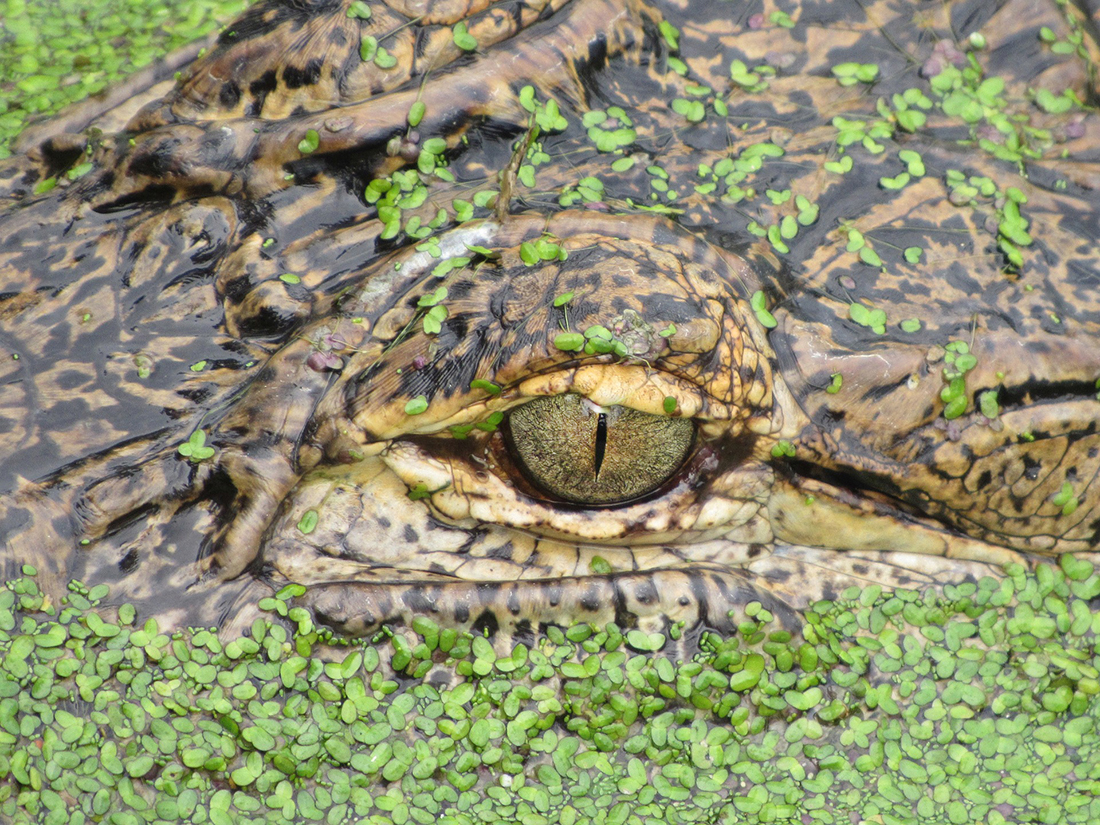Camping in Florida RV parks is one of the best ways to enjoy the Sunshine State. Since so much of Florida is wetlands, most Florida RV parks feature some water elements, either natural or manmade, on or near their properties. In many parts of the state, these water features offer a tremendous habitat for one of the most amazing creatures on the planet, the American Alligator. They are found in all 67 Florida counties! When the Good Sam team gave us the thumbs up to write about alligators we jumped at the chance. We are Florida natives who do most of our weekend camping in Florida and over the years, we’ve seen and safely avoided many of gators in and around campgrounds and in the wild. Watching Florida gators can be an enriching experience when done with caution.
We have some camping friends who really don’t care for these beasts at all. That is totally ok. These are dangerous creatures who are deserving of your respect. They have an important job of keeping the ecosystem in balance, making them a crucial part of Florida’s whole ecology. In other words, co-existing with gators while camping in Florida is a must.
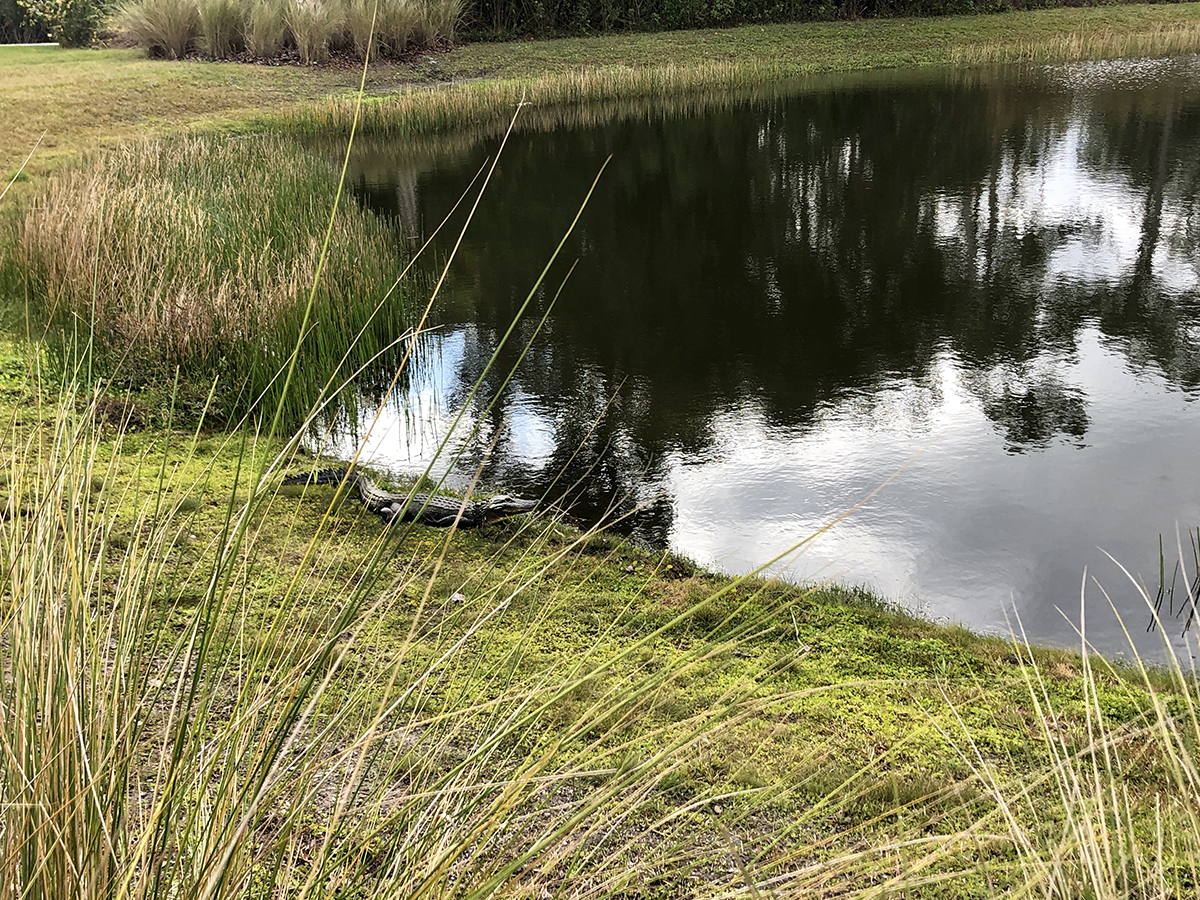
A gator on the bank of a pond. Photo: Home While We Roam
Since you are very likely to observe an alligator while you are camping in Florida RV Parks, use these tips to keep yourself and your family safe.
Alligators will not bother you, unless you bother them
Most gators you see in Florida RV parks are too small to hurt you, anyone in your family, or your pets. A wild alligator would prefer to eat small frogs, snakes or a fish, before they would care to sample a human. In most cases, you are safe to stop and watch a gator sunning if you see one. That gator will let you know if you get too close by simply darting into the water in a blink of an eye. If you are not acting aggressively or threatening the gator in some way, it is a safe bet it will choose to flee into the water vs. chasing you across the campsite.
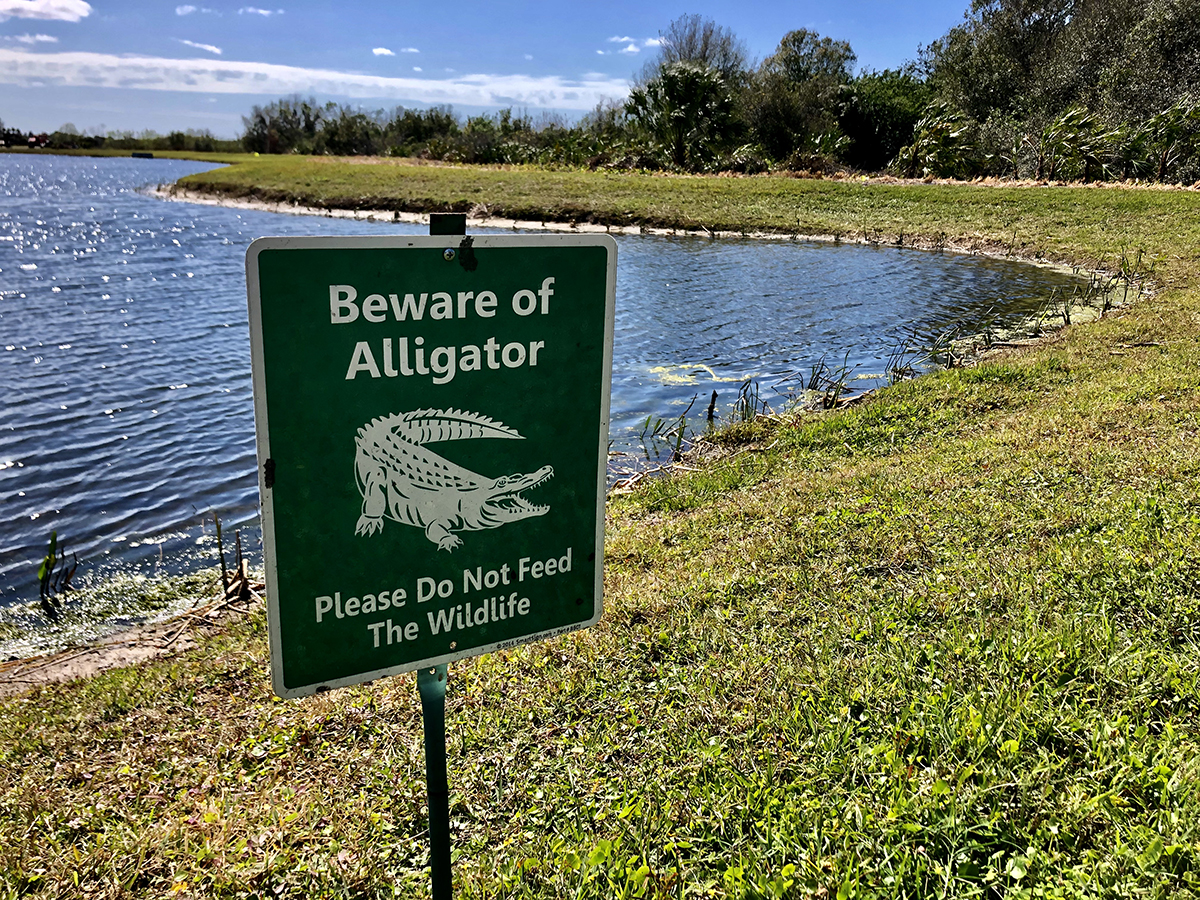
Heed signage regarding alligators. Photo: Home While We Roam.
Do not feed the gators
There are many reasons not to feed alligators. The biggest reason is that it is illegal. The easiest one to remember is that a fed gator equals a dead gator. Feeding any wild animal only teaches it that humans represent an easy way to get a meal. This is as true for alligators as it is for bears and raccoons. An alligator that has been deemed aggressive enough to be a nuisance and get removed is almost always the result of having been fed by humans. In Florida, when an alligator is removed, it is not re-homed somewhere. Their population is healthy enough that the licensed contractors will destroy the nuisance gator to prevent it from returning to the same location. The great thing about Florida RV parks is that they will help you keep the gators wild by displaying signage that reminds you not to feed them.
Keep your distance
If you do get lucky enough to spot a gator and you feel safe enough to do so, we always recommend that you spend a few minutes watching the animal. If you choose to observe, you must do this in a safe and non-aggressive way. The easiest way to do this is to just keep your distance. If you are close enough to throw a stick and have it land near the gator, you are too close. We like to stay far enough away that we can see leg movement but not much closer than that. If you swim in water that gators are known to frequent, which is quite common, stay in the marked swim zones and away from obvious gator habitat. Remember, that these toothy friends will be working on keeping their distance from you too.
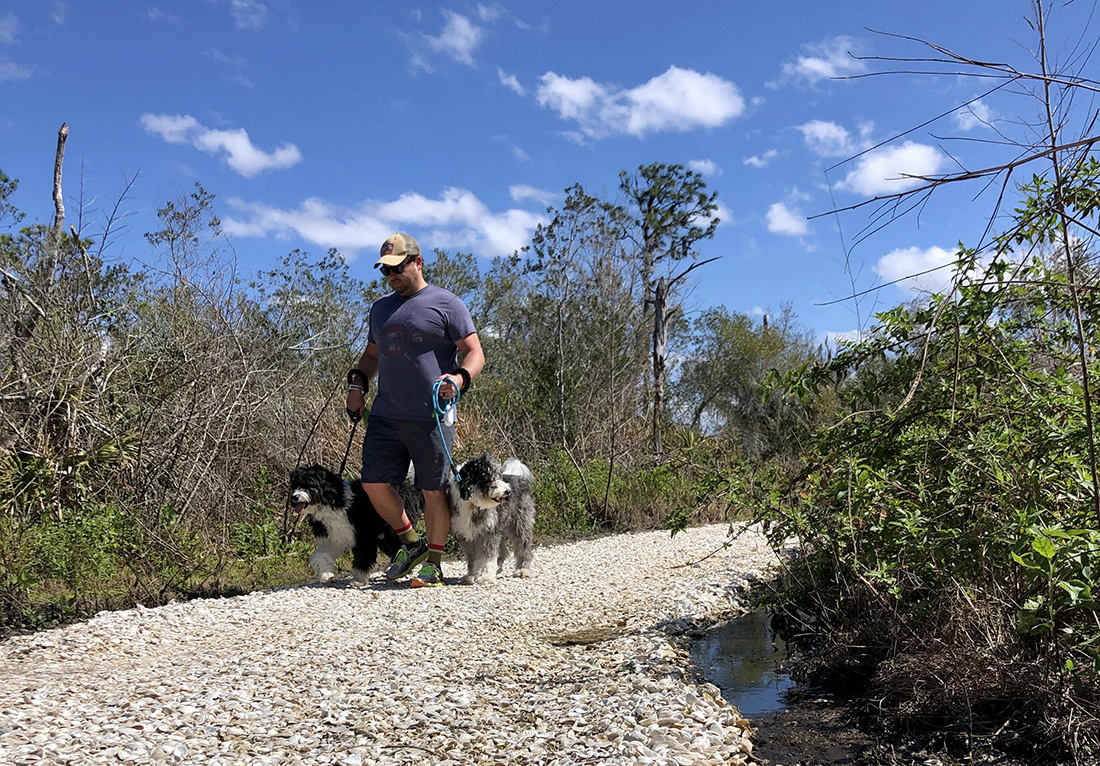
Keep dogs on a tight leash if you’re near a potential alligator habitat. Photo: Home While We Roam
Know when to expect to see a gator
If you want to avoid alligators (or seek them out) while you are camping in Florida, it helps to know when you would have the best chance of encountering one. Gators are most active at dawn and dusk. Those times of day are also some of the best hiking times, especially in the Florida Summer. Keep that in mind if your goal is to avoid gators. During sunny days, alligators can often be found on grassy banks along the water. They bask in the sun to regulate their body temperatures, so we always keep an eye out if we are swimming on a lakefront campsite. Alligators are great camouflage artists and they can often look exactly like logs floating in the water. You should avoid low land and murky water areas. If you have small pets that camp with you, keep in mind how close they are getting to the water when you are taking them on walks.
Alligators do get more aggressive during mating season, which runs from April through June. Since these are also some of the best months to visit Florida, just use the tips we have already covered to keep safe.
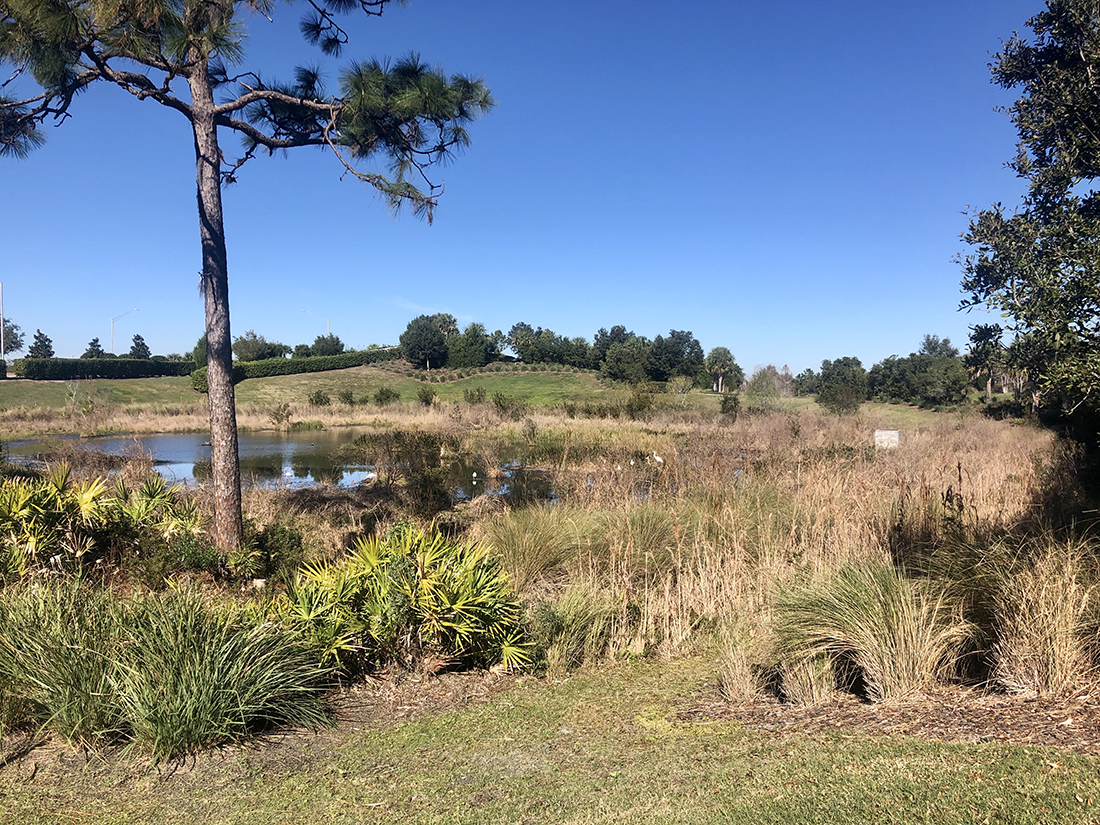
Alligators gravitate to wetlands areas. Photo: Home While We Roam.
Recognize alligator habitat
Alligator habitat is usually pretty easy to recognize. They like to hang out in the medium- to large-sized, slow-moving or not moving bodies of water. Any water that might be rich in turtles, frogs, and snakes is a great spot to find a gator. In a typical small Florida pond, we would expect to find at least one and maybe two alligators. When our family is camping in a Florida RV park and we encounter a wetland on a hike, we look for indicators of gator habitat like waterfowl, heavy weeds, grassy banks for sunning, and turtles.
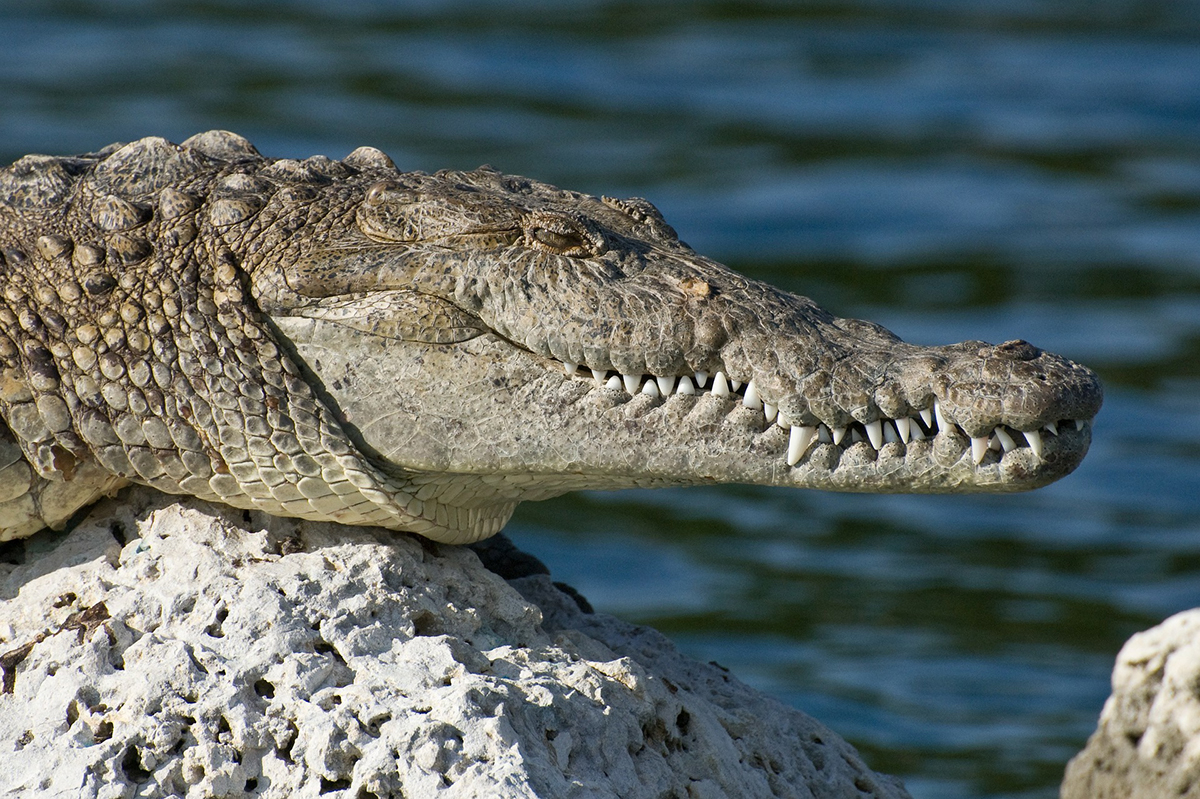
American crocodile relaxing in the sun. Photo: TPS Dave
It’s not a crocodile (most of the time)
Is it an alligator or crocodile? Sometimes our camping friends new to camping in Florida RV parks ask if the gators they see are actually a crocodile. In most cases, they are alligators and not crocodiles because the American Crocodile has a much smaller U.S. range than alligators. However, you may be surprised to know that Florida is also home to the American Crocodile. According to the National Park Service, American Crocodiles inhabit coastal areas of South Florida where they are at the northern extreme of their range. You won’t see a crocodile if you are encamped in traditional Florida RV camping destinations like central Florida. If you are in South Florida and especially near the Everglades National Park you do have a chance to see (or avoid) actual crocodiles!
What to do if you see a dangerous alligator
The Florida Fish and Wildlife Commission is responsible for managing nuisance alligators and it removed over 8k alligators in 2018. That being said, The FWC also says the odds of being seriously injured during an unprovoked alligator incident in Florida is about one in 3.1 million.
If an alligator is at least four feet long and is in an area where it could pose a threat to people, pets or property, it’s considered a nuisance alligator.
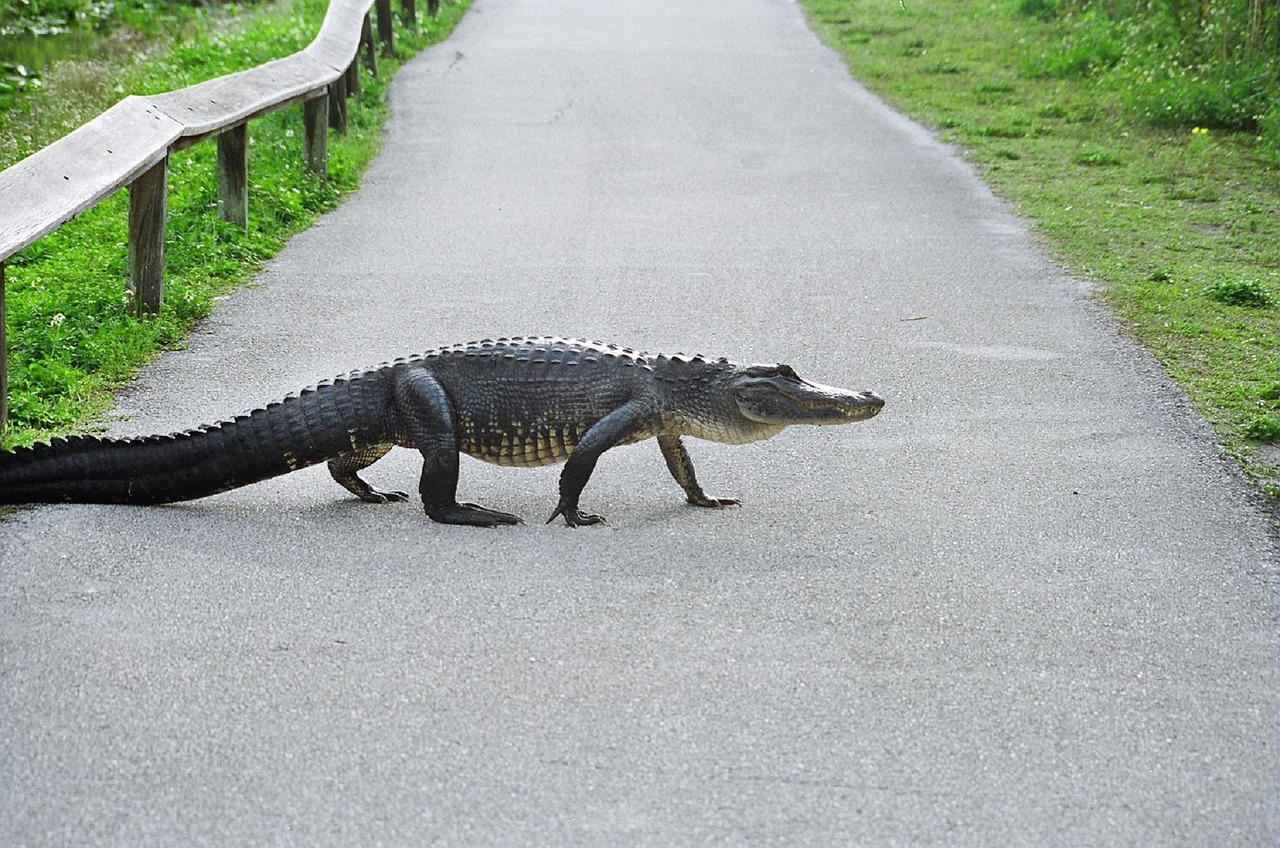
Gator Crossing. Photo Skeeze
If they haven’t been handled or fed, Alligators smaller than four feet are not large enough to be considered dangerous. They are typically not large enough to pose a threat, even to small pets.
Regardless of size, the FWC says it encourages anyone who believes a specific alligator poses a threat to people, pets or property to call the Nuisance Alligator Hotline at (866) 392-4286. The FWC receives an average of 15,000 nuisance alligator complaints annually!
You can avoid gators Camping in Florida RV Parks
As Florida natives, we made our peace and agreed to share our campsites and neighborhoods with these fantastic creatures many years ago. It goes without saying that these are dangerous creatures, are unpredictable, and demand our respect. Your chances of spotting a gator near a body of water can be high while you camp in Florida, but the chances of an aggressive encounter are very, very low. We hope these tips will help you to avoid gators while you are visiting Florida RV parks. If you are the adventurous type and want to observe a wild gator, we hope these tips help you do so in a fun, safe and educated way!

